Address
P.O.BOX 2964,
Block A, Sweya
Mwanza, Tanzania
info@emedo.or.tz
Work Hours
Monday to Friday: 8AM - 5PM
Address
P.O.BOX 2964,
Block A, Sweya
Mwanza, Tanzania
info@emedo.or.tz
Work Hours
Monday to Friday: 8AM - 5PM
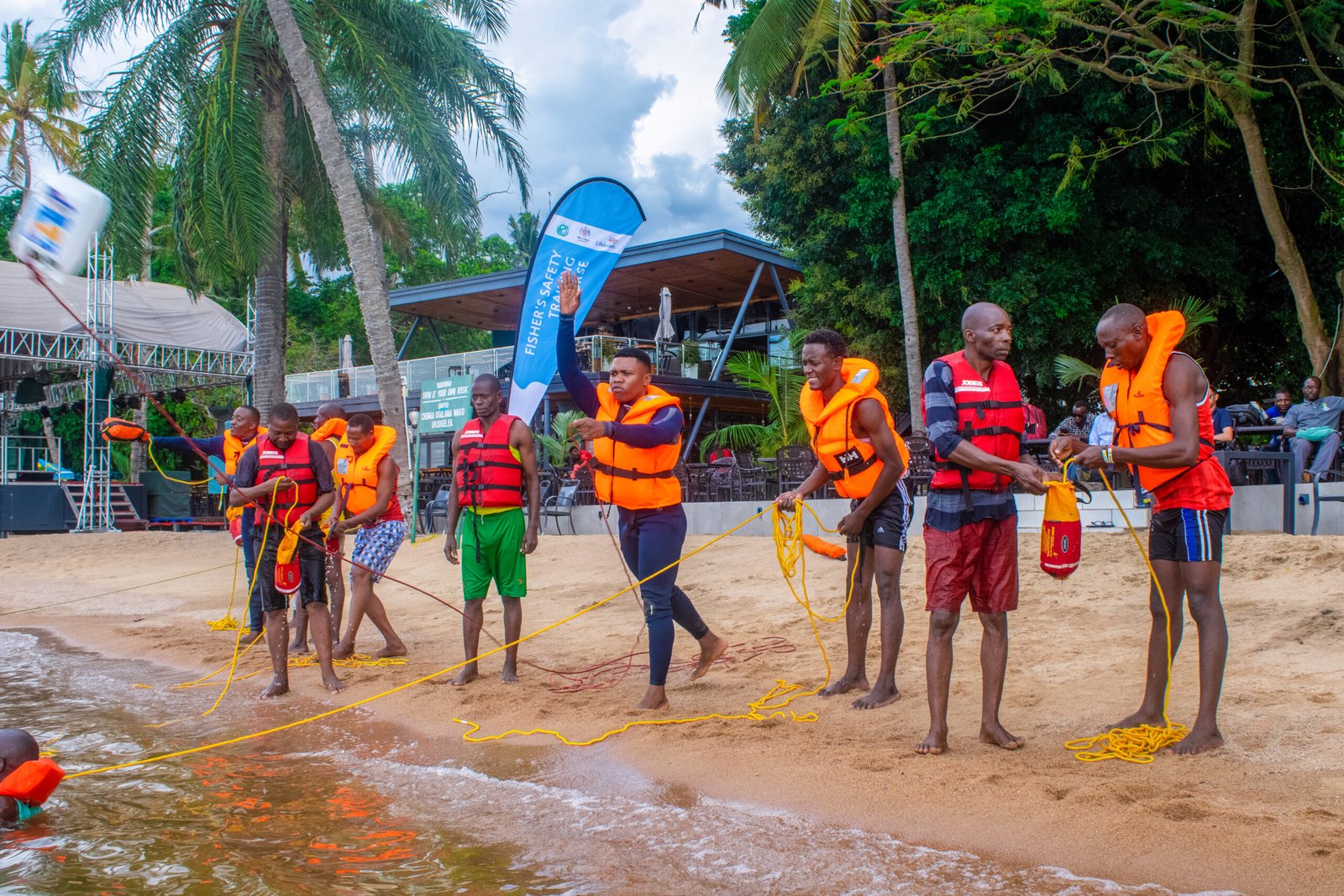
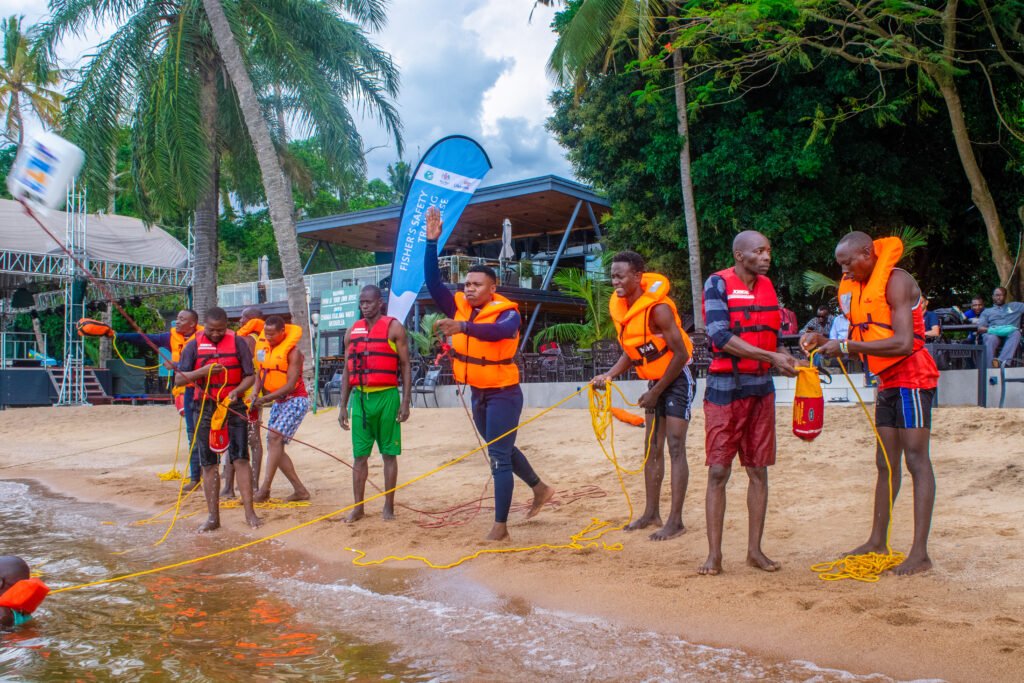
The waters of Lake Victoria, teeming with life and livelihood, also harbor significant risks for the fishing communities that depend on them. In response to the growing concern over drowning incidents and the need for enhanced water safety, EMEDO, through the Lake Victoria Drowning Prevention Project (LVDPP), has been leading transformative initiatives to protect lives and promote sustainable fishing practices. This project, funded by the Royal National Lifeboat Institution (RNLI), Irish Aid, and the Isle of Man, adopts an innovative Human-Centered Design (HCD) approach, working directly with communities to identify their needs and co-create impactful solutions.
Beginning in 2022, EMEDO collaborated with Designing Without Borders (Uganda) to immerse itself in the realities of fishers in the Kome and Busekera communities. The HCD process involved spending time in fishing camps, conducting focus group discussions, and engaging key informants. This in-depth exploration revealed a critical gap in safety knowledge and practices, prompting the development of key interventions such as:
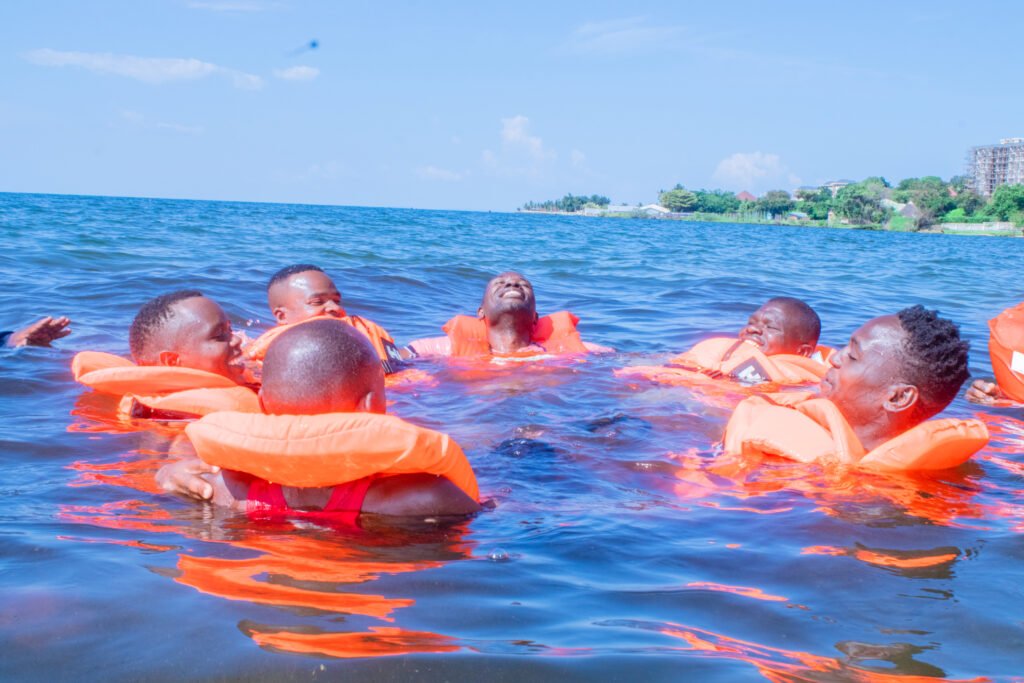
Between November 12 and 18, 2024, EMEDO hosted a five-day safety training program in Sweya, Mwanza. This event was designed to address the dire need for personal survival skills, hazard awareness, and effective emergency response within fishing communities.
Eight trainers from organizations such as the Marine Police, Fire and Rescue Force, and the Fisheries Education and Training Agency (FETA) underwent specialized training led by RNLI. The sessions combined theoretical knowledge and hands-on practical exercises in self-rescue, rescuing others, and first aid. Notably, the team included a female trainer from the Marine Police College, underscoring the program’s commitment to inclusivity.
Twenty-four fishers, women processors, and young boat loaders participated in intensive theoretical and practical sessions. The training included:
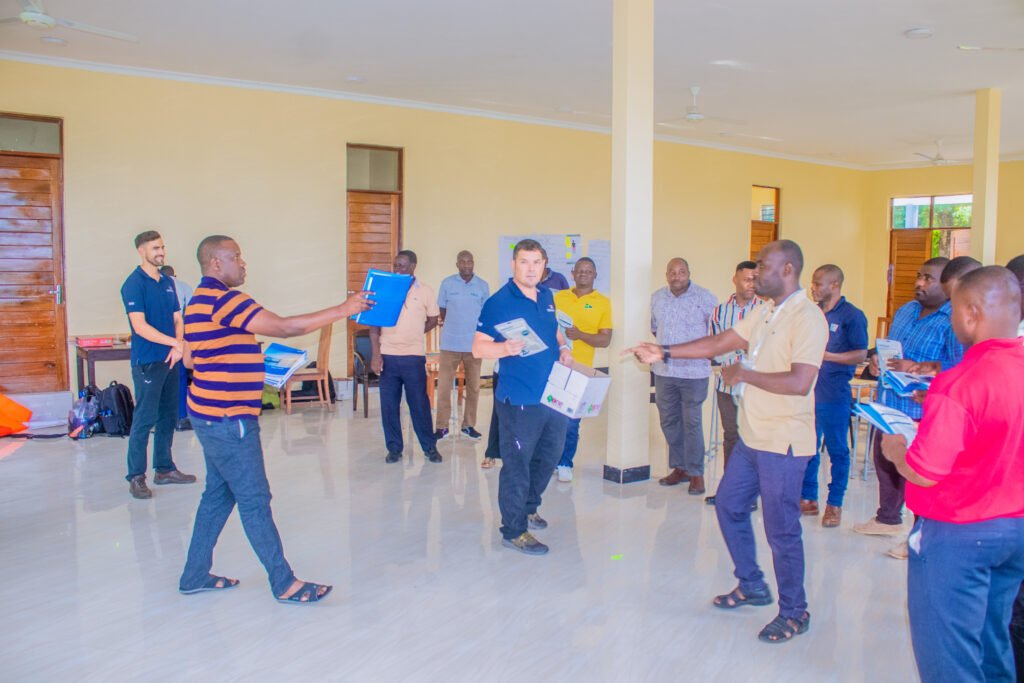
The training methodology was tailored to the unique context of fishers, focusing on interactive and practical approaches:
• Theory Sessions: Conducted at the Marine Police Academy and EMEDO offices, these sessions utilized flashcards and demonstrations instead of PowerPoint slides, fostering engagement and understanding.
• Practical Sessions: Held at Lake Victoria, these exercises allowed participants to apply their skills in real-life scenarios under the guidance of experienced trainers.
This comprehensive training is expected to yield both immediate and long-term benefits:
The success of this initiative reflects the collective effort of diverse stakeholders, including the Marine Police, Fire and Rescue Force, Fisheries Resource Protection and Management Unit, and the Office of the Prime Minister’s Disaster Management Department. The development of a Community Emergency Response Plan further enhances these efforts by:
• Providing a framework for coordinated rescue operations.
• Equipping Beach Management Units (BMUs) with essential safety gear.
• Training community leaders and stakeholders in search-and-rescue techniques.
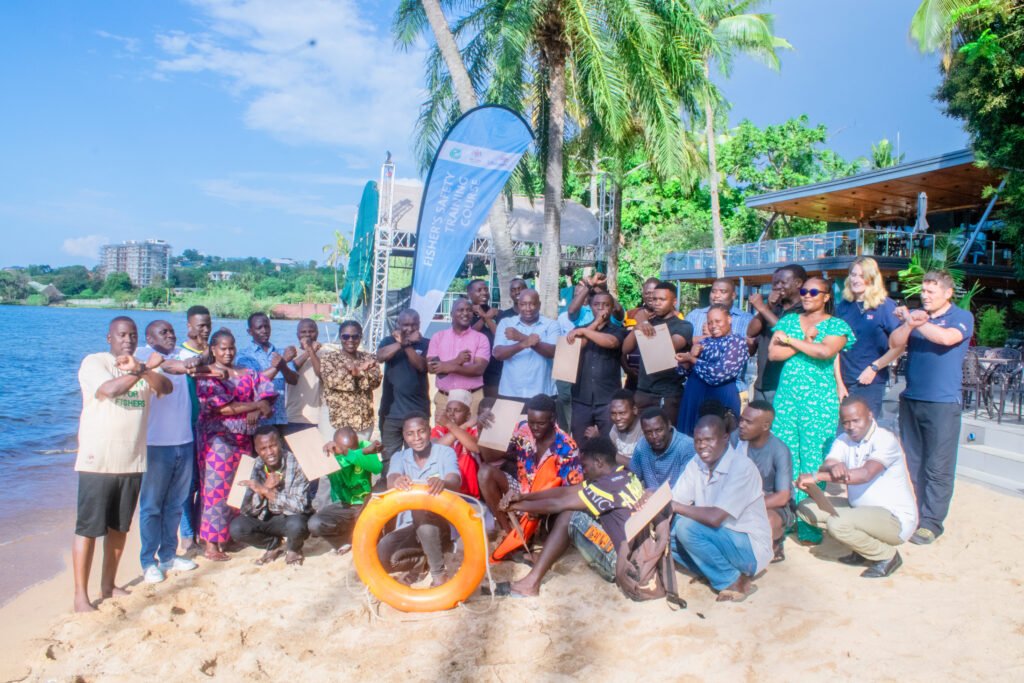
The training aligns with Tanzania’s Fisheries Master Plan (2021/22–2036/37), which emphasizes safety at sea and decent working conditions. It also supports global frameworks like the Small-Scale Fisheries (SSF) Guidelines and the Sustainable Development Goals (SDGs), particularly: SDG 3: Good Health and Well-being, SDG 8: Decent Work and Economic Growth, SDG 2: Zero Hunger.
Complementing the safety training, EMEDO collaborated with stakeholders to design and pilot a Community Emergency Response Plan. This plan equips Beach Management Units (BMUs) and local leaders with the tools and knowledge to coordinate rescue efforts effectively. It also highlights the importance of equipping BMU offices with essential safety gear, such as life rings, ropes, and lifejackets.
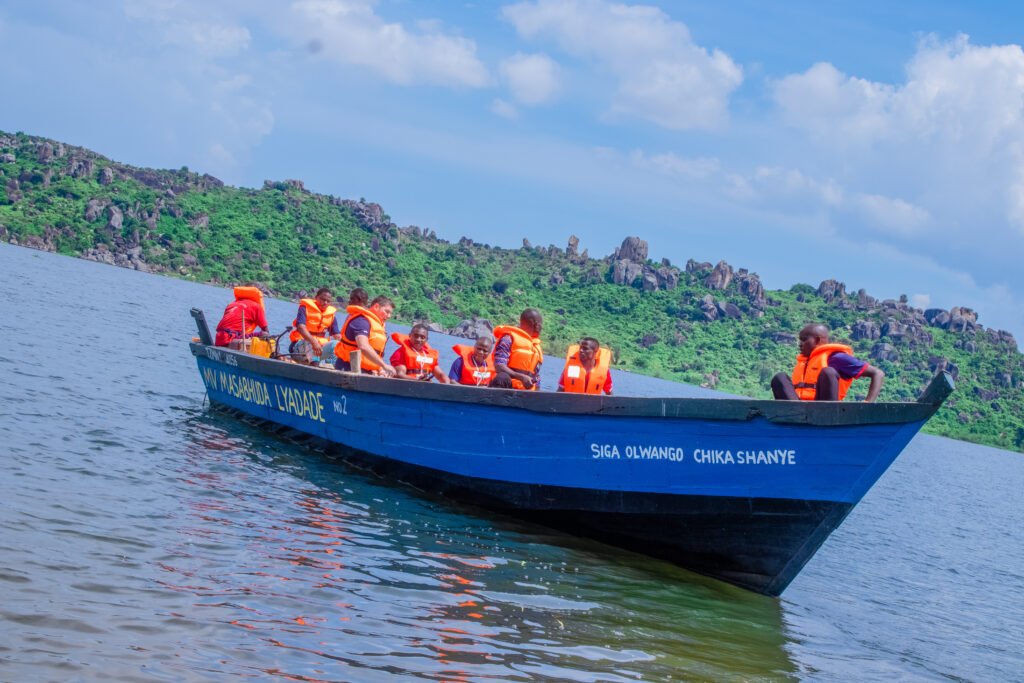
Participants expressed their appreciation for the program’s impact on their safety and livelihoods. Emmanuel Magoti, a fisher, remarked:
“We now understand the importance of safety gear and practices. This training is a lifesaver for us.”
Arthur Mgema, the Project Manager, highlighted, “Our goal is to change the perspectives of fishers so that they become ambassadors of their own safety. We must work together with stakeholders in the fishing sector and the government to ensure our fishers operate safely.”
EMEDO’s Director, Editrudith Lukanga, added, “Often, we enjoy what is served on our plates without considering the challenges fishers face while on the water. Through our partnership with the Isle of Man, RNLI, and various government institutions, we hope we can achieve our goal to enhance fishers’ safety.”
The Director commended all the participating fishers, trainers, and other stakeholders, including TASAC, the Ministry of Livestock and Fisheries through the Fisheries Resource Protection and Management Unit in Mwanza, and the Office of the Prime Minister through the Disaster Management Unit, for their active involvement in ensuring the successful implementation of the training.
EMEDO believes that this training will transform fishers’ attitudes toward water safety, leading to increased productivity in the fishing sector. According to the Ministry of Livestock and Fisheries, the sector directly employed 198,475 people in the 2023/2024 fiscal year.
EMEDO extends its gratitude to all stakeholders, including RNLI, government agencies, and the local community, for their invaluable contributions. Together, we are creating a future where fishing communities thrive in safety and dignity.